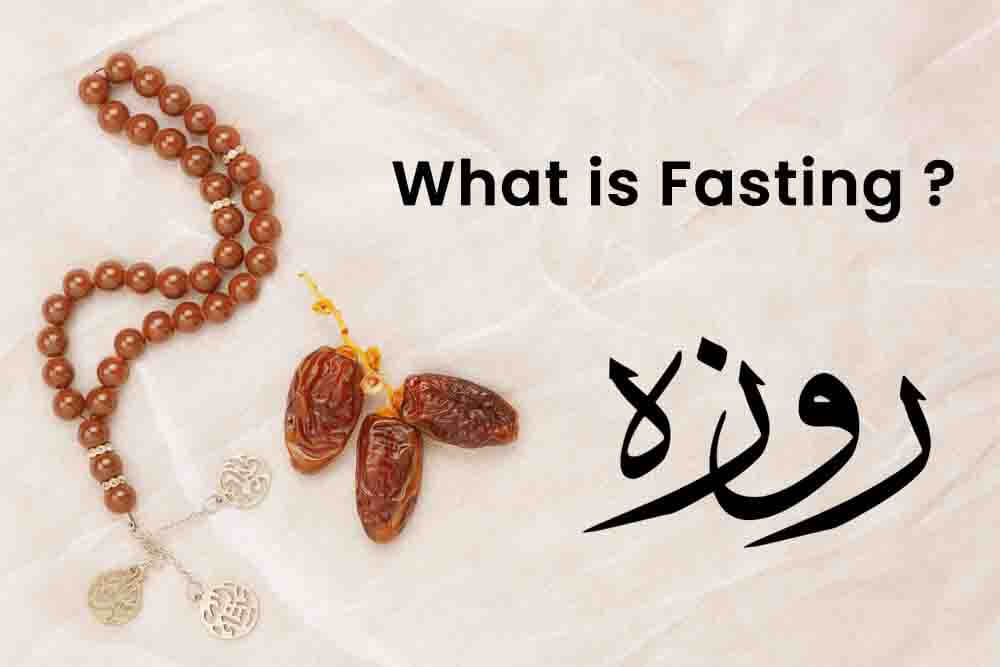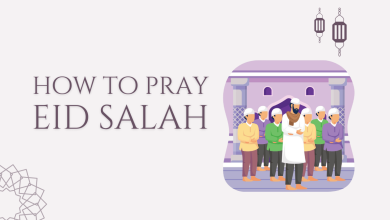Ramadan 2025 – A Guide to The Holy Month Ramadan
Ramadan is the most sacred month for Muslims worldwide. It is the ninth month of the Islamic calendar, following Shaban. This month is filled with blessings and virtues and is observed with gratitude by believers worldwide.
Millions of Muslims worldwide will observe Ramadan in 2025. The first day of fasting, known as Roza, is expected to be between February 28, 2025 (Friday) and March 02, 2025 (Sunday). This blog will provide everything you need to know about Ramadan 2025, including its meaning, importance, benefits, and guidelines for properly observing it.
Meaning of Ramadan:
The word “Ramadan” originates from the Arabic root “Ramad” (رَمَضَ), which means scorching heat or dryness. This reflects the spiritual purification and cleansing that occurs during this sacred month. Ramadan is the ninth month of the Islamic lunar calendar and is of great significance in Islam. It is during this month that the Quran was revealed to Prophet Muhammad (SAWW) as guidance for humanity. Allah states in the Quran:
“The month of Ramadan [is that] in which was revealed the Quran, a guidance for the people and clear proofs of guidance and criterion…”
{Quran 2:185}
Throughout this holy month, Muslims fast from dawn until sunset as an act of worship and obedience to Allah. The fast observed by Muslims is called “Roza” (روزہ) in Urdu and Persian, and “Saum” (صوم) in Arabic. The term “Saum” means “to abstain,” referring to refraining from food, drink, and other worldly desires from Fajr (pre-dawn) to Maghrib (sunset).
Fasting during Ramadan is one of the five pillars of Islam, highlighting the values of self-discipline, patience, and gratitude. It serves as a means for believers to purify their hearts, strengthen their faith, and cultivate empathy for those who are less fortunate.
Benefits & Virtues of Ramadan:
Ramadan offers both spiritual and physical benefits, helping believers grow closer to Allah while also improving their overall well-being. Some of the importance of Ramadan are:
- Strengthens the Relationship with Allah: Fasting, praying, and making Dua throughout Ramadan help deepen one’s faith and bring a stronger connection to Allah.
- Purifies the Heart and Soul: Abstaining from sins and focusing on good deeds cleanses the heart and nurtures the soul.
- Increases Patience and Self-Discipline: Fasting teaches self-restraint, helping individuals control their desires and emotions.
- Brings Forgiveness for Past Sins: Sincere prayers and seeking forgiveness in this holy month lead to Allah’s mercy and the erasure of sins.
- Encourages Acts of Charity and Kindness: Muslims are encouraged to help those in need through Zakat and Sadaqah (Charity), increasing generosity and compassion.
- Helps in Detoxifying the Body: Fasting gives the digestive system a break, allowing the body to remove toxins naturally.
- Improves Digestion and Metabolism: Controlled eating habits during Ramadan support better digestion and regulate metabolism.
- Enhances Mental Clarity and Focus: Fasting sharpens the mind, improves concentration, and increases mindfulness.
- Reduces Stress and Anxiety: Engaging in Prayers, Zikr, and Quran recitation brings inner peace and reduces mental stress.
Importance of Ramadan in Hadith:
There are multiple Hadith, highlighting the importance and virtues of Ramadan. Some of them are:
Holy Prophet (SAWW) states that:
“When the month of Ramadan starts, the gates of Heaven are opened, the gates of Hell are closed, and the devils are chained.”
{Sahih al-Bukhari 1899}
Another famous hadith states:
“Whoever fasts during Ramadan with faith and seeking reward, all his previous sins will be forgiven.”
{Sahih al-Bukhari 38}
The Importance of Suhoor, Iftar, and Taraweeh in Ramadan:
The Holy Month Ramadan is not just about fasting but also about the key practices that enhance its spiritual and physical benefits. Suhoor, Iftar, and Taraweeh hold great importance in this holy month, each carrying its rewards and blessings.
Suhoor – The Pre-Dawn Meal
Suhoor is the meal eaten before Fajr prayer, ensuring that a person has enough energy to fast throughout the day. It is a blessed meal, encouraged by the Prophet (SAWW), and differentiates Islamic fasting from other forms of fasting. Skipping Suhoor can make fasting more difficult, while eating it brings barakah (blessings). The Prophet (SAWW) said: “Eat Suhoor, for in Suhoor there is blessing.” {Sahih al-Bukhari 1923}
📌 Further Reading: Suhoor Meaning – Sehri Dua
Iftar – The Breaking of the Fast
Iftar is the moment when Muslims break their fast at sunset, marking the end of their daily fast. It is a time of gratitude and reflection, reminding believers of the blessings of food and water. It is Sunnah to break the fast with dates and water, as practiced by the Prophet (SAWW). The Prophet (SAWW) said: “The people will remain upon goodness as long as they hasten to break their fast.” {Sahih al-Bukhari 1957}
📌 Further Reading: Iftar – Dua for Opening Fast
Taraweeh – The Special Night Prayers
Taraweeh is a special set of prayers offered after Isha during Ramadan. It provides an opportunity to listen to the Quran being recited in congregation and earn immense rewards. Performing Taraweeh in this holy month strengthens faith and helps believers seek forgiveness from Allah.
The Prophet (SAWW) said: “Whoever stands in prayer during Ramadan with faith and seeking reward, all his past sins will be forgiven.” {Sahih al-Bukhari 37}
📌 Further Reading: Taraweeh Prayer – How to Pray Tarawih
Charity in Ramadan:
Charity holds a special place in Ramadan, as it is a time when rewards are magnified, and acts of kindness are doubly blessed. Giving charity during this holy month helps believers purify their wealth and assist those in need. The rewards for charity are significantly multiplied in Ramadan, as it is the month when good deeds are multiplied, and Allah’s mercy is abundant. The Prophet (SAWW) said: “The best charity is that given in Ramadan.” {Al Tirmidhi 663}
Muslims are encouraged to give Zakat, Sadaqah, and other forms of charity, as it not only aids those in need but also strengthens the spirit of community and gratitude. By helping those less fortunate, individuals develop empathy and align with the true essence of Ramadan.
How to Practice Ramadan Properly:
Muslims can follow these guidelines to practice Ramadan properly:
- Observe fasting (Sawm) daily from Fajr to Maghrib.
- Pray all five daily prayers on time.
- Recite and reflect on the Quran regularly.
- Perform extra prayers, including Taraweeh.
- Give in charity (Sadaqah and Zakat).
- Make lots of Dua and seek forgiveness.
- Avoid sinful behavior and bad habits.
What Breaks the Fast?
Below are the several things that breaks a fast for the Muslim:
- Eating or drinking intentionally before sunset.
- Smoking.
- Vomiting deliberately.
- Menstruation or postnatal bleeding.
- Engaging in marital relations.
- If fasting is broken unintentionally, the fast remains valid.
Who Is Exempt from Fasting?
Certain individuals are not obligated to fast:
- Travelers: If the journey is long and difficult, one can skip fasting and make up for it later.
- Sick Individuals: If fasting harms health, it can be postponed and observed later.
- Elderly People: Those who cannot fast due to age are exempt but should feed a needy person instead.
- Pregnant and Nursing Women: If fasting affects health, they can delay fasting and make up for it later.
- Children: Fasting is only obligatory for adults (those who have reached puberty).
FAQs About Fasting During Ramadan:
Yes, smoking or chewing tobacco breaks the fast even if you don’t swallow it, as it involves ingesting something harmful to the body.
No, injections or drips do not break the fast unless they are providing nourishment. It is permissible for those who require injections or drips for medical reasons, such as insulin for diabetic patients.
Yes, putting drops in the eyes and nose can break the fast because the taste of the drops can be felt in the throat.
No, putting drops in the ears does not break the fast because there is no direct passage between the ears and the stomach.
No, drawing blood does not break the fast as long as it is not for nourishment purposes.
No, swallowing saliva does not break the fast, as it is a natural bodily function and does not involve food or drink.
Vomiting breaks the fast in the following cases:
i) If the vomiting is intentional.
ii) If the vomiting is mouthful.
iii) If the person remembers that they are fasting while vomiting.
No, eating or drinking while forgetting that you are fasting does not break the fast. The Holy Prophet (Peace Be Upon Him) said: “Whoever eats or drinks forgetfully, then let him complete his fast, for what he has eaten or drunk has been given to him by Allah.”
Yes, fasting does not prevent you from performing your regular duties such as work, study, or chores, as long as you continue to observe the fast and avoid eating, drinking, or sinful behavior.
Yes, individuals who are ill or weak due to illness or any other condition are allowed to break their fast. However, they are required to make up for the fast at a later time when they can.
Conclusion:
Ramadan is a month of immense blessings, spiritual growth, and devotion. Ramadan 2025 is an opportunity to strengthen our faith, increase our good deeds, and seek Allah’s mercy. By fasting, praying, giving charity, and practicing self-discipline, we draw closer to Allah and purify our hearts. May we all make the most of this blessed month
May Allah accept our fasts and prayers. Ameen!



